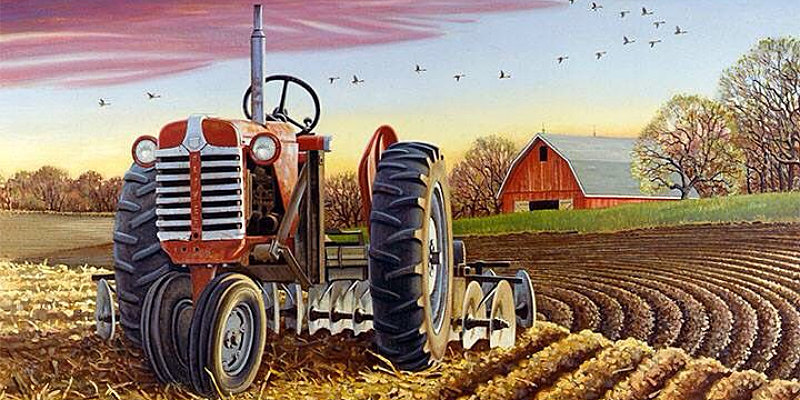Getting Food After Your Storage Runs Out

Level 4 Preparedness. It’s the level at which you’re striving for a self sustaining lifestyle. And when it comes to food, it’s about doing it yourself to the extent possible. Getting your own – doing it yourself. Growing your own. Raising your own. Possibly with the help of like minded others too.
Most preppers simply store an amount of food for ‘just in case’. This may range from an extra supply of several weeks worth, to several months, or even a year or more. It all depends on one’s risk tolerance thresholds.
A nice inventory of diversified stored foods will be just fine for just about every typical preparedness scenario that you could think of. However as one ventures further down the ‘rabbit hole’ of possibilities, today’s uncertain times are calling out to many preppers… to get more prepared for the unthinkable. A time when running out to the grocery store may not be such a simple option.
So what happens when you’ve finally used up all your food storage (for whatever SHTF reason)? Well hopefully way before that happens – you’ve set plans in motion to keep yourself / household fed!
Where’s the food going to come from? Where are you going to get it?
A few brainstormed thoughts surrounding a few methods of Level-4 food procurement preparedness…
Growing Crops
- Sprouting seeds (fast and easy)
- Fast growing vegetables vs. longer time to maturity
- Container gardening
- Square-foot gardening techniques
- Large scale gardening
- Full-on farming
- Land requirements, good soil
- Geographical location differences
- Weather, growing zone, season, limitations
- Greenhouse
- Fertilizer
- Compost
- Pests, critters
- Fencing
- Knowledge and experience
- Corn and Potatoes (high in calories)
- Some vegetables store well, others don’t
- Equipment
- Fuel for equipment
- Lots of manual labor
- Irrigation, water
- Harvest and preservation methods (and gear)
- Canning equipment
- Heirloom varieties, save seeds for next season
Raising Livestock
- Selecting livestock based on your needs, limitations
- Chickens, Rabbits, Swine, Cows
- Food and water for livestock
- Containment, fencing, and equipment
- Butchering
- Knowledge and experience
- Land for this
- Animal health and medical issues
- Breeding
- Predators
Hunting
- Hunting what?
- Trapping
- Bow (silent)
- Firearms
- Experience and know-how
- Ammo, Reloading
- Field dressing
- Butchering
- Equipment
- Processing, preserving
- Land to hunt
Fishing
- Got to have a source nearby, otherwise SOL
- Knowledge of area ponds, rivers, streams, lakes
- Rods and reels, lines and equipment
- Nets
- Cleaning fish
- Boat
Foraging / Wild Edibles
- Plant identification (safety)
- Reference guides
- Local knowledge
Bartering For Food
- Trading your labor for farmers food
- Trading (whatever services you can provide) for food
We sure do take food for granted. It is not easy providing your own. In fact it can be nearly impossible when you consider total household calorie requirements if you don’t already have some major experience and the needed resources to get it done. So many things can (and will) go wrong. Lots of labor, resources, and time. Some luck needed too.
It’s just food for thought.
